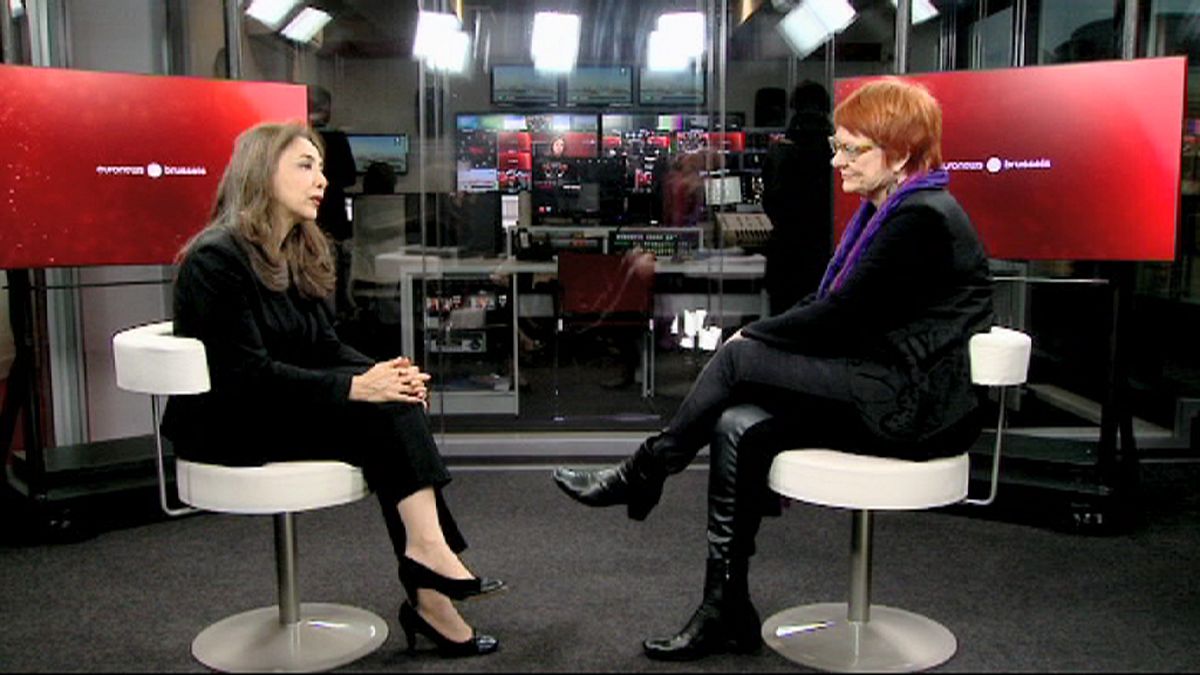The Greens MEP Tarja Cronberg is leading a European Parliament delegation to Iran on Thursday, following the recent partial international nuclear deal.
The six-month agreement was reached after a marathon round of negotiations on November 24.
“The Geneva agreement on Iran’s nuclear programme, as it was hoped is opening doors to all sides. A visit by an EU parliamentary delegation to Iran, heralds the first step towards thawing relations that were put on ice for nearly six years,” said euronews correspondent Fariba Mavaddat.
Iran has agreed to restrictions to its nuclear programme in return for a promise by world powers not to impose new sanctions.
The problem is, the Iranians and the Americans have differing interpretations as to what was actually agreed.
Among other measures, Iran vowed to restrict its uranium enrichment and development of its heavy water reactor at Arak.
But immediately, the Iranian Foreign Minister Mohammad Javad Zarif reiterated Tehran’s intention to continue enrichment activities and installing the reactor.
Meanwhile the US Secretary of State John Kerry said the deal meant Iran’s enrichment would be halted and the Arak project put on ice for six months.
Despite the disagreement, Iran does seem to have changed tack under its moderate new President Hassan Rohani.
A combination of poor domestic economic policies and international sanctions had brought near paralysis.
The welcome of an EU delegation is a sign of the president’s apparent determination to bring Iran back into the international fold.
Fariba Mavaddat, euronews: “Tarja Cronberg, what are you hoping to achieve from this visit?”
Tarja Cronberg (Greens/EFA, Finland), chair of European Parliament delegation: “The European Parliament’s delegations, they visit the country and then representatives from the country come and visit us. And the last time, it was the Iranians who came to the European parliament. Now it is our turn, so it was also our initiative.”
euronews: “What is on your list? Where are you going to visit and who are you going to see?”
Tarja Cronberg: “The main thing for us to visit is, of course, the Iranian parliament. And so, this is the question of inter-parliamentary dialogue, but also then the government and representatives of the civil society. We want to go outside the government and meet civil society representatives. Also we meet the UN officials working for example with drug trafficking, and other institutions.”
euronews: “Are you planning to raise the question of human rights in Iran?”
Tarja Cronberg: “Sure. Of course we talk about human rights in the parliament, this is a very natural starting point – pose questions and also explain the views of the European parliament. But also, the Iranian government has been very open to discussing these questions.”
euronews: “It has been six years, more than six years now that there has been no visit to Iran by the EU parliament. What do you think has changed?”
Tarja Cronberg: “I think there is an openness towards the West, and also Iran has been very isolated in the past and there have been pressures also from the West to isolate Iran completely. So, now this is an opening, it is the first effort to see how it works. And so the conditions for good dialogue are existing.”
euronews: “Apart from that, is there anything else you are hoping to achieve?”
Tarja Cronberg: “Well, I think one of the things that is important for us is that last year the European parliament gave the Sakharov price to two Iranians, (the film director) Jafar Panahi* and (the human rights lawyer) Nasrin Sotudeh*. We, of course, hope to meet them.”
euronews: Tarja Cronberg, thank you.
*Panahi and Sotudeh were both jailed after being convicted separately on charges of propaganda against the Iranian government.
